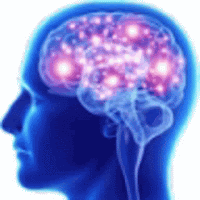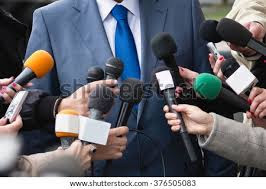We've all heard about our genes.
Genetics is the science of genes, their structure, function and the not quite
perfect way they transmit copies of themselves - without which there would be
no variety and people would not show it in profusion among us, as they do.
As if that weren’t enough,
environments also change, and the life varieties that survive over time are
those naturally adapted to sustain their existence - their 'life' - in changed
conditions. Charles Darwin, who of course introduced this mechanism to us all,
called it ‘natural selection’ to distinguish it from the artificial selection
that people had already been doing for ages. From tigers, pussy cats.
There is no known or apparent reason
why the process of natural selection is not at work in the Universe itself, or
across the Multiverse if that’s what the situation is.
Our Universe has certainly evolved
or we wouldn’t be here. And we’ve all heard as well of a primordial ‘soup’ that
was around very early on. If our Universe, in all its stunning complexity -
galaxies, stars, planets, tigers, cats and us - did not emerge out of that
soup, we must explain what it did emerge from, and how.
On that, more recent scientific
theorising (itself constantly ‘evolving’) considers that the Universe is not
necessarily running down like some gigantic machine, as is generally supposed
to be the case. That scenario, faintly depressing however far off, is said to result from entropy,* taken to mean that everything runs from order to disorder and
finally arrives at a featureless state of equilibrium. Like the coffee in our
picture, or the hot water left to become tepid then cold in your bath. No difference. No variety. Nothing.
Needless to say, this is controversial, an equally controversial proposal being that the increase in 'disorder' (seen rather as an increase in complexity) spontaneously gives rise to new forms, including self-sustaining life. And human life, possessed by natural selection with agency, has the potential to change things.
Be all that as it may, the Universe that began with the
Big Bang clearly did not start out like it is today. In which case, entropy may
not be death but re-birth, midwife not undertaker, and this may be the way
things are eternally.
That’s where, if S/He ever left, God
comes back in.
Even as the Universe evolves, no
one - no caliph, bishop, mystic, naturalist and let’s be clear, no scientist -
is able to say for sure how the process started, or why. Chances are none ever
will.
If the Big Bang started it, next up
is what started the Big Bang? If the Big Bang started itself, how did it have
the necessary explosive? If it wasn’t an ‘explosion’ in that sense, just
quantum fluctuation and an instant expansion of space,** where did the quanta
come from and why the fluctuation?
Any way you think about it, you're
into an infinite regression. In one Creation story the world stands on the
back of a giant turtle, the reply to any query about what the turtle stands on being it's turtles
all the way down. There’s no way out of infinity. Only the possibility
that there is no infinity and no mystery “out
there” at all.
Our brain did not
evolve to deal with the infinite; it evolved dealing with our bounded environment here on Earth. Likewise, when single-celled brainless life emerged in some
boiling pool somewhere eons ago, its entire concern was surviving in the pool,
not on planet Earth or Mars. It's at it there to this day. We humans tackle
surviving on planets.
To go a little deeper
into that, we're also able to grasp, with no sense of a fathomless mystery, the
long past and formation of Earth and Mars, and before that, can conceive of a distant time when neither of them was around.
And it doesn't stop
there. We know Earth in not going to last forever yet can imagine an infinite
future for the Universe with humans a living part of it. Only a Beginning,
try as we might, is beyond reach.
But what if there was
no Beginning, if there is no answer, no question, no mystery, never will be - only ever God?
What on earth would explain that?
Us.
*Entropy is promulgated
by the stern Second Law of Thermodynamics. Could the Universe ignore it?
**Most scientists agree the Universe is expanding, but not on how fast. None can say if it will stop.












